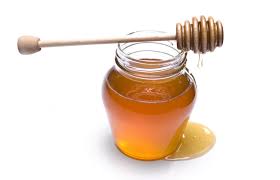
Breaking News
 Sunday FULL SHOW: Newly Released & Verified Epstein Files Confirm Globalists Engaged...
Sunday FULL SHOW: Newly Released & Verified Epstein Files Confirm Globalists Engaged...
 Fans Bash Bad Bunny's 'Boring' Super Bowl Halftime Show, Slam Spanish Language Performan
Fans Bash Bad Bunny's 'Boring' Super Bowl Halftime Show, Slam Spanish Language Performan
 Trump Admin Refuses To Comply With Immigration Court Order
Trump Admin Refuses To Comply With Immigration Court Order
 U.S. Government Takes Control of $400M in Bitcoin, Assets Tied to Helix Mixer
U.S. Government Takes Control of $400M in Bitcoin, Assets Tied to Helix Mixer
Top Tech News
 SpaceX Authorized to Increase High Speed Internet Download Speeds 5X Through 2026
SpaceX Authorized to Increase High Speed Internet Download Speeds 5X Through 2026
 Space AI is the Key to the Technological Singularity
Space AI is the Key to the Technological Singularity
 Velocitor X-1 eVTOL could be beating the traffic in just a year
Velocitor X-1 eVTOL could be beating the traffic in just a year
 Starlink smasher? China claims world's best high-powered microwave weapon
Starlink smasher? China claims world's best high-powered microwave weapon
 Wood scraps turn 'useless' desert sand into concrete
Wood scraps turn 'useless' desert sand into concrete
 Let's Do a Detailed Review of Zorin -- Is This Good for Ex-Windows Users?
Let's Do a Detailed Review of Zorin -- Is This Good for Ex-Windows Users?
 The World's First Sodium-Ion Battery EV Is A Winter Range Monster
The World's First Sodium-Ion Battery EV Is A Winter Range Monster
 China's CATL 5C Battery Breakthrough will Make Most Combustion Engine Vehicles OBSOLETE
China's CATL 5C Battery Breakthrough will Make Most Combustion Engine Vehicles OBSOLETE
 Study Shows Vaporizing E-Waste Makes it Easy to Recover Precious Metals at 13-Times Lower Costs
Study Shows Vaporizing E-Waste Makes it Easy to Recover Precious Metals at 13-Times Lower Costs
Science again confirms the efficacy of ancient medicine: The antibacterial properties of honey...

To many, honey is more than just a natural sweetener: it's a source of valuable medicine. A revered folk cure, honey has been used for a variety of medicinal purposes throughout the centuries, and now, science has confirmed that this tasty food may be all that stands between us and the scourge of antibiotic-resistant infections like MRSA.
MRSA, or methicillin-resistant Staphylococcus aureus, is a serious bacterial infection known for its resistance against treatment with antibiotics – making the infection more than difficult for conventional medicine to reconcile. As Healthline.com explains, MRSA infections can easily be contracted via cuts or other skin abrasions. Because of how highly contagious MRSA is, it can be spread through contact with an infected person.
Hospital-acquired MRSA is particularly dangerous and is reportedly more likely to come with serious complications like pneumonia or sepsis. Hospital-acquired MRSA is known for its ability to create a life-threatening infection – and for its potential to spread to others.
Antibiotics resistance in general has been regarded as one of the biggest threats to modern society. Recent estimates have suggested that by the year 2050, some 10 million people will face an antibiotic-resistant infection each year. Experts believe antibiotic-resistant superbugs will soon pose a greater threat to human health than cancer.
But a recent study, led by researchers from the University of Mascara in Algeria, has shown that honey may be able to help. The researchers say that honey can be an effective tool against MRSA infections, and perhaps, other infectious diseases as well.
Using different kinds of honey from a number of Algerian territories, scientists were able to create polyphenol extracts that were then used against MRSA samples in lab testing. The team found that all four of the polyphenol extracts were effective against MRSA, though with varying degrees of efficacy. The honey extract from Jijel, Algeria was found to have the highest inhibitory effect overall.
The research team declared their conclusion:
The study of the antibacterial effect of honey extracts allowed us to present an alternative way against the infectious diseases.

 Smart dust technology...
Smart dust technology...

